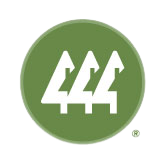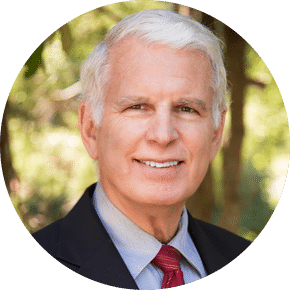Lake Tapps/
Bonney Lake
About Bonney Lake/Lake Tapps
Bonney Lake is a city in Pierce County, Washington, United States. The median income for a household in the city was $60,282, and the median income for a family was $62,644. Males had a median income of $46,813 versus $31,837 for females. The per capita income for the city was $21,371. About 3.0% of families and 4.0% of the population were below the poverty line, including 3.8% of those under age 18 and 5.3% of those age 65 or over.
Lake Tapps is a reservoir in Pierce County, Washington. It was created in 1911 by Puget Sound Energy and operated for hydroelectric power until it ceased power production in 2004. In December 2009 PSE sold the reservoir to the Cascade Water Alliance, a municipal corporation whose members are five King County cities (Bellevue, Issaquah, Kirkland, Redmond, and Tukwila) and two water and sewer districts (Sammamish Plateau Water and Sewer District, and the Skyway Water and Sewer District). Cascade provides drinking water to more than 350,000 residents and more than 20,000 businesses. It plans to eventually use Lake Tapps as a municipal water supply source for customers of its members.
Lake Tapps is often considered a city or census-designated place in its own right, although it shares a zip code (98391) with the Bonney Lake post office. However, the majority of the area surrounding the reservoir is in unincorporated Pierce County; the rest is part of the city of Bonney Lake. At the northern edge of Lake Tapps is Auburn.
source: wikipedia.org
Read More ▾Avg Work Commute
0 minsMedian Age
0Median Area Income
$0Median Sale Price
$0The Commute
Travel Methods
To City CenterAvailable Properties
View all ⇢Bonney Lake/Lake Tapps Sales Data
Percentage change from latest quarter vs same time period previous year
Data compiled using 2nd quarter 2024 data vs. same period from 2023
Median Sales Price
MEDIAN SALES PRICE

Demographics
- Filter by:
- Population
- Income
- Education
- Market Rents
Population by Age Level. Median Age 39.29. Households: 8,676.
In Thousand of Dollars. (Median Income: $102,904)
Population by Education Level
Fair Market Rents
Bonney Lake/Lake Tapps Schools & Education
Public & Private Institutions Of Learning
Education is provided by public, private and home schools. State governments set overall educational standards, often mandate standardized tests for K–12 public school systems and supervise, usually through a board of regents, state colleges, and universities. Funding comes from the state, local, and federal government. Private schools are generally free to determine their own curriculum and staffing policies, with voluntary accreditation available through independent regional accreditation authorities, although some state regulation can apply.
Avg School Rating
4.1/5Publically Funded
13Private / Charter
3Publically Funded
Tehaleh Heights Elementary
Elementary School
- Preschool - 5th Grade
- Student - Teacher Ratio: 27 : 1
-
Great School Rating:
- Website
Crestwood Elementary School
Elementary School
- Preschool - 5th Grade
- Student - Teacher Ratio: 11 : 1
-
Great School Rating:
- Website
Bonney Lake Elementary School
Elementary School
- Kindergarten - 5th Grade
- Student - Teacher Ratio: 21 : 1
-
Great School Rating:
- Website
Victor Falls Elementary School
Elementary School
- Kindergarten - 5th Grade
- Student - Teacher Ratio: 24 : 1
-
Great School Rating:
- Website
Donald Eismann Elementary
Elementary School
- Kindergarten - 5th Grade
- Student - Teacher Ratio: Not Reported : 1
-
Great School Rating:
- Website
Lake Tapps Elementary School
Elementary School
- 1St Grade - 3Rd Grade
- Student - Teacher Ratio: 18 : 1
- Great School Rating: N/A
- Website
Emerald Hills Elementary School
Elementary School
- Kindergarten - 5th Grade
- Student - Teacher Ratio: 17 : 1
-
Great School Rating:
- Website
Liberty Ridge Elementary School
Elementary School
- Kindergarten - 5th Grade
- Student - Teacher Ratio: 21 : 1
-
Great School Rating:
- Website
Dieringer Heights Elementary School
Elementary School
- Kindergarten - 5th Grade
- Student - Teacher Ratio: 21 : 1
-
Great School Rating:
- Website
North Tapps Middle School
Middle School
- 6th Grade - 8th Grade
- Student - Teacher Ratio: 20 : 1
-
Great School Rating:
- Website
Mountain View Middle School
Middle School
- 6th Grade - 8th Grade
- Student - Teacher Ratio: 19 : 1
-
Great School Rating:
- Website
Lakeridge Middle School
Middle School
- 6th Grade - 8th Grade
- Student - Teacher Ratio: 21 : 1
-
Great School Rating:
- Website
Bonney Lake High School
High School
- 9th Grade - 12th Grade
- Student - Teacher Ratio: 22 : 1
-
Great School Rating:
- Website
Private / Charter
Kelly Lake Montessori
Elementary School
- Preschool - Kindergarten
- Student - Teacher Ratio: Not Reported : 1
- Great School Rating: N/A
Kindercare #1375
Pre School
- Preschool - Preschool
- Student - Teacher Ratio: Not Reported : 1
- Great School Rating: N/A
Lake Tapps Montessori
Elementary School
- Preschool - Kindergarten
- Student - Teacher Ratio: 8 : 1
- Great School Rating: N/A
Where To Drink, Dine, Shop, Relax & Recline























































































































































 By submitting information, I am providing my express written consent to be contacted by representatives of this website through a live agent, artificial or prerecorded voice, and automated SMS text at my residential or cellular number, dialed manually or by autodialer, by email, and mail.
By submitting information, I am providing my express written consent to be contacted by representatives of this website through a live agent, artificial or prerecorded voice, and automated SMS text at my residential or cellular number, dialed manually or by autodialer, by email, and mail.

